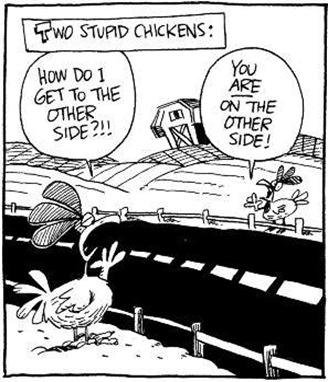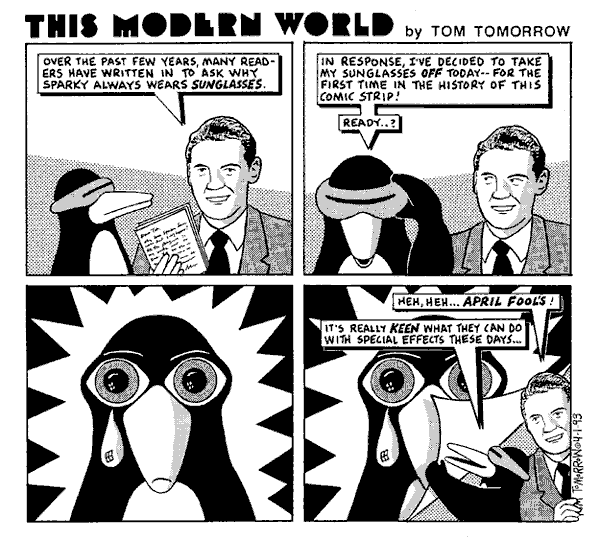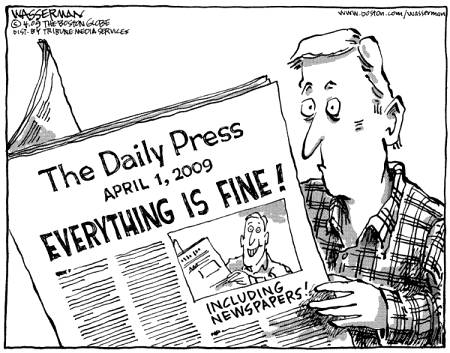
Originally, New Year's Day was April 1. Later, when the Church changed the calendar, they also changed the date for January 1. However, some people continued using April 1 as the date of the New Year. These people were referred to as "April Fools".

In the early Roman calendar, April 1 was the first day of spring, the spring equinox, and before 154 B.C. it was New Years Day. Many celebrations of many cultures observed this day as the coming of the renewal of the earth and life. There would be sacrifices and gifts given to the gods. When the Christians came into power in the Roman Empire, they created a celebration we call Easter that replaced the spring rituals.
Although the most common belief is that the observance of April Fool's Day began in France,there really wasn't a "first April Fool's Day" that can be pinpointed on the calendar. Some believe it sort of evolved simultaneously in several cultures at the same time, from celebrations involving the first day of spring.
French children fool their friends by taping a paper fish to their friends' backs. When the "young fool" discovers this trick, the prankster yells "Poisson d’Avril!" In England, tricks can be played only in the morning. If a trick is played on you, you are a "noodle". In Scotland you are called an "April Gowk" or cuckoo bird. It lasts for two days there. The second day in Scotland is called Taily Day and is dedicated to pranks involving the buttocks. The Scotts can be given credit for the "Kick Me." Americans play small tricks on friends and strangers alike on the first of April. One common trick on April Fool's Day is pointing down to a friend's shoe and saying, "Your shoelace is untied." If victim falls for the joke the prankster yells, "April Fool!"

Some popular pranks
- Replacing salt in the sugar bowl at breakfast.
- Attaching a small piece of tape to the mouseball so it does not work.
- Setting the alarm clock ahead one hour and allowing the victim to think they have slept in.












